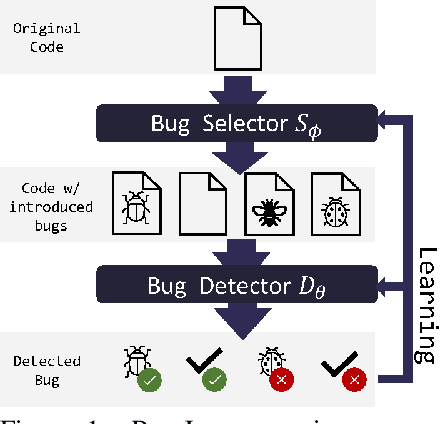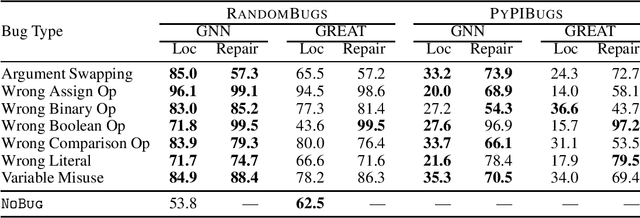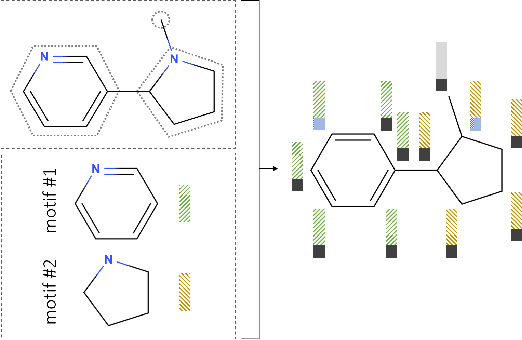Henry Jackson-Flux
Self-Supervised Bug Detection and Repair
May 26, 2021



Abstract:Machine learning-based program analyses have recently shown the promise of integrating formal and probabilistic reasoning towards aiding software development. However, in the absence of large annotated corpora, training these analyses is challenging. Towards addressing this, we present BugLab, an approach for self-supervised learning of bug detection and repair. BugLab co-trains two models: (1) a detector model that learns to detect and repair bugs in code, (2) a selector model that learns to create buggy code for the detector to use as training data. A Python implementation of BugLab improves by up to 30% upon baseline methods on a test dataset of 2374 real-life bugs and finds 19 previously unknown bugs in open-source software.
Learning to Extend Molecular Scaffolds with Structural Motifs
Mar 05, 2021



Abstract:Recent advancements in deep learning-based modeling of molecules promise to accelerate in silico drug discovery. There is a plethora of generative models available, which build molecules either atom-by-atom and bond-by-bond or fragment-by-fragment. Many drug discovery projects also require a fixed scaffold to be present in the generated molecule, and incorporating that constraint has been recently explored. In this work, we propose a new graph-based model that learns to extend a given partial molecule by flexibly choosing between adding individual atoms and entire fragments. Extending a scaffold is implemented by using it as the initial partial graph, which is possible because our model does not depend on generation history. We show that training using a randomized generation order is necessary for good performance when extending scaffolds, and that the results are further improved by increasing fragment vocabulary size. Our model pushes the state-of-the-art of graph-based molecule generation, while being an order of magnitude faster to train and sample from than existing approaches.
 Add to Chrome
Add to Chrome Add to Firefox
Add to Firefox Add to Edge
Add to Edge